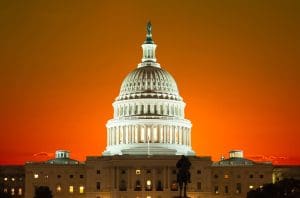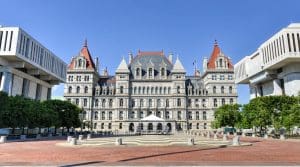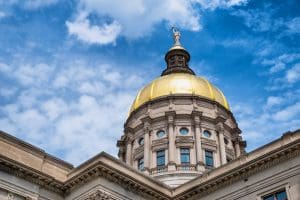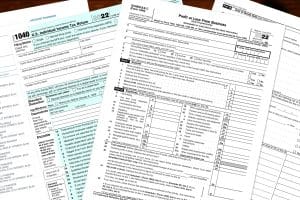The economic crisis caused by the coronavirus pandemic poses a triple challenge for tax policy in the United States. Lawmakers are tasked with crafting a policy response that will accelerate the economic recovery, reduce the mounting deficit, and protect the most vulnerable.
To assist lawmakers in navigating the challenge, and to help the American public understand the tax changes being proposed, the Tax Foundation’s Center for Federal Tax Policy modeled how 70 potential changes to the tax code would affect the U.S. economy, distribution of the tax burden, and federal revenue.
In tax policy there is an ever-present trade-off among how much revenue a tax will raise, who bears the burden of a tax, and what impact a tax will have on economic growth. Armed with the information in our new book, Options for Reforming America’s Tax Code 2.0, policymakers can debate the relative merits and trade-offs of each option to improve the tax code in a post-pandemic world.

There’s Still Room for Responsible State Income Tax Relief in 2023
Forty-three states adopted tax relief in 2021 or 2022—often in both years—and of those, 21 cut state income tax rates. It’s been a remarkable trend, driven by robust state revenues and an increasingly competitive tax environment.
4 min read
State Tax Policy as an Inflation Response
At the end of 2022, prices were 14.6 percent higher than they were two years prior. That’s the fastest inflation rate over any two calendar years since the stagflation era of the late 1970s. State policymakers are understandably interested in bringing any tools at their disposal to bear on the problem. And many of them are reaching for tax policy solutions.
7 min read
Fair Tax FAQ
The FairTax is a proposal to replace all major sources of the federal government’s revenue—the individual income tax, corporate income tax, estate and gift taxes, and payroll tax—with a national sales tax and rebate, abolishing the IRS in the process.
7 min read
New York’s Proposed Cigarette Tax Hike and Flavor Ban Will Fuel Illicit Markets and Decrease Revenue
Earlier this month, New York Governor Kathy Hochul (D) proposed increasing the state’s cigarette tax rate by $1.00 a pack, banning the sale of flavored vaping products, and ceasing the sale of all flavored tobacco products. If enacted, these policies would fuel black markets and create a fiscal hole for the state to fill, all while hurting New York businesses and consumers.
4 min read
What the OECD’s Pillar Two Impact Assessment Misses
The process leading to the global minimum tax has been messy, and the mess will likely continue for years to come. New revenues are hardly a salve for the setback they represent.
7 min read
West Virginia Is Being Left Behind on Tax Relief
West Virginia is one of only seven states that hasn’t offered any significant tax relief since 2021—and five of the other six forgo an individual income tax.
6 min read
Iowa Proposal to Rein in Property Taxes Misses the Mark
On the heels of adopting one of the most comprehensive state tax reform packages in years, Iowa lawmakers are back in Des Moines with property tax relief in their sights. But while the issue is worthy of their attention, House File 1 (HF 1) as currently drafted misses the mark.
4 min read
Pursuing Delors’ Single Market: What the EU Gets Wrong About Its Economic Power and What It Means for the U.S.
Before EU policymakers rush to implement massive reforms, they should remember the goals of the Single Market, its international limitations, and the role of tax policy.
4 min read
Georgia Should Reinforce Its Tax Reform Intentions
By shifting to a flat income tax, Georgia has already made an important commitment to tax competitiveness. Although the state’s top rate threshold is already very low, a true single-rate income tax will help protect taxpayers from inflation-related tax increases and provide a buffer against rising tax rates in the future. To combine responsible rate reductions with these benefits, Georgia should create tax triggers that empower the state to keep pace with its competition.
3 min read
Frustration and Delays as the 2023 Tax Filing Season Begins
A combination of long-standing IRS operational deficiencies, the agency’s temporary closure due to the pandemic, and the now-expired pandemic relief produced a perfect recipe for a paper backlog.
4 min read